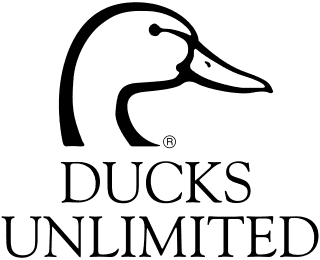Transportation Bill Land and Water Conservation Funding Provisions Important to Sportsmen
Ducks Unlimited 05.24.12

Leaders representing sportsmen’s interests, including Ducks Unlimited, Pheasants Forever, a South Dakota farmer/rancher, and the former Secretary of South Dakota Game, Fish and Parks, joined today to call on Congress to maintain funding for land and water conservation programs as they debate a final transportation authorization bill. In a teleconference, the groups described the urgent need to protect precious wetlands and native prairies in the Dakota Grasslands Conservation Area as an example of why this funding is critical to fish and wildlife conservation in addition to sportsmen’s access to public lands.
“Protecting the best of what’s left in the Prairie Pothole Region (PPR) can be our greatest legacy. Tools like the Land and Water Conservation Fund will help us meet the landowners’ needs on the ground and leverage the significant private and state dollars invested in the region,” said John Cooper, former Secretary of South Dakota Game, Fish and Parks. “The conservation funding provisions in the Senate-passed transportation bill have strong bipartisan support and will have a tremendous impact here in the grasslands, as well as in the Flint Hills of Kansas, the Everglades headwaters in Florida, or along the Snake River in Idaho. These precious areas protect important fish and wildlife habitat and provide great hunting and fishing.”
A House and Senate conference committee is currently debating two versions of a transportation bill in the hope of finding agreement on one final package before the current authorization expires on June 30th. The Senate’s version of the bill (S. 1813) ensures the funds authorized for the LWCF are spent for their intended purpose in each of the next two years and permanently commits 1.5 percent of LWCF funds to projects that provide public access for hunting, fishing and other outdoor recreation. The LWCF funding provision was passed as an amendment on the Senate floor by an overwhelming 76-22 bipartisan vote. Securing this funding will be vital for areas like the Prairie Pothole Region, one of the country’s most at-risk landscapes as well as an area well known to sportsmen for its importance to migratory waterfowl and for upland birds.
“The Dakota Grasslands Conservation Area project would accelerate the conservation of native prairie and wetlands within the PPR of North and South Dakota. The PPR was formed by glaciers 10,000 years ago and is one of the world’s most productive breeding grounds for waterfowl and other wetland and grassland birds,” said Paul Schmidt, chief conservation officer with Ducks Unlimited. “We need to act quickly to protect this severely threatened ecosystem while preserving the working landscape of ranching and livestock operations. Passing this transportation bill with dependable funding for LWCF will make a tremendous impact.”
Conserving native prairie and wetlands in the region is a priority for South Dakota farmer and rancher, Jim Faulstich. “As a rancher, I’m very concerned about the conversion of grass to crops,” Faulstich said. “We need to take a holistic approach to landscape management and care for our natural resources or we will all lose in so many ways, now and for future generations. We have proven this over time in our own family operation.”
Securing the funding for LWCF within the transportation bill will impact areas around the country that are important to sportsmen and women, from the Okefenokee National Wildlife Refuge in Florida and Georgia, to the John Day Headwaters in the Malheur National Forest of Oregon. Since its creation, LWCF has also helped to provide access for hunting and fishing at hundreds of national wildlife refuges, national forests and national recreation areas, as well as state parks and wildlife management areas across the country.
“The Dakota Grasslands is just one example of why we need to make sure Congress finalizes a transportation bill this year and that it retains the LWCF provisions. This program has done so much good for hunters and anglers in giving us places to go, while protecting important habitat for fish and wildlife,” said Dave Nomsen, Vice President of Government Affairs with Pheasants Forever.

